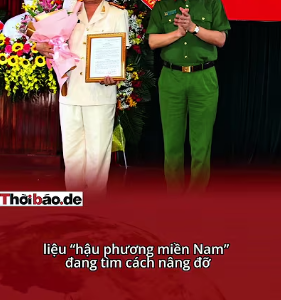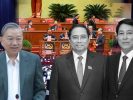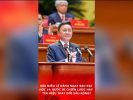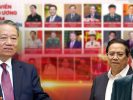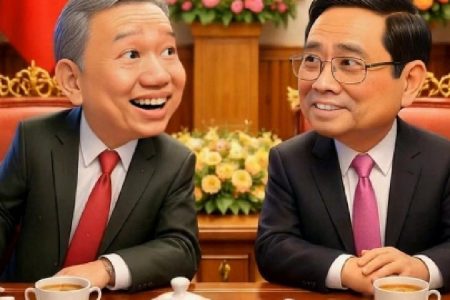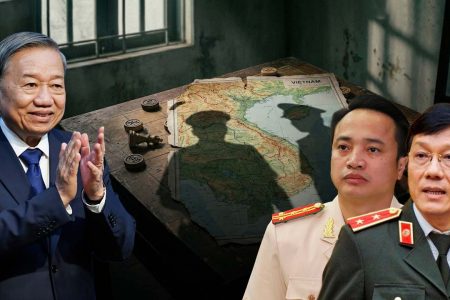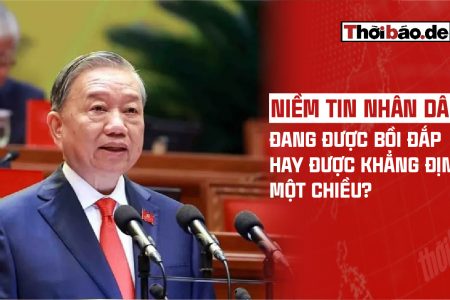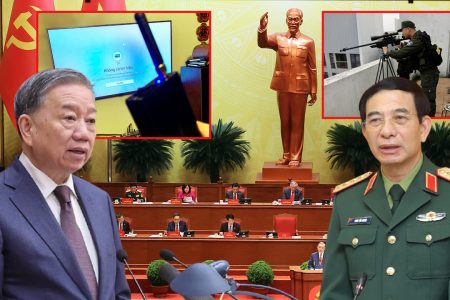Immediately after Vietnam on behalf of ASEAN leaders issued a statement considered the „most powerful“ ever on the South China Sea, which refers to the 1982 UN Convention on the Law of the Sea (UNCLOS) and was welcomed by the US, China’s Global Times has an editorial article saying the statement aimed at China and that US intervention could be the cause for more „confidence“ of Southeast Asian countries.
At the 36th ASEAN Summit, hosted by Vietnam as a rotating presidency and organized online, the bloc leaders issued a joint statement “reaffirming that UNCLOS was the basis for deciding maritime interests, sovereignty, jurisdiction and legitimate interests in maritime areas.”

Dr. Le Hong Hiep of the ISEAS-Yusof Ishak Institute of Southeast Asian Studies told VOA on June 29 that, according to many people, the statement made on June 26 „could be a step forward when compared to with previous declarations ”and were considered as“ ASEAN’s support for the 2016 arbitral tribunal’s decision in the case between the Philippines and China.”
Three unnamed Southeast Asian diplomats shared the same opinion when telling the US news agency that the statement showed that the group of ASEAN countries wanted to strengthen international law in the East Sea (South China Sea).
Other international news agencies also said that ASEAN leaders this time have sent the most powerful message ever to China in the context of Beijing intensifying its actions to control the South China Sea during the time when the neighboring countries are focusing on fighting corona virus originating from China’s Wuhan.
The Global Times, a supplement of the Communist Party of China (CPC)’s People’s Daily, said on June 29 that international media overstated that the claim was specifically aimed at China.
„Compared to ASEAN’s previous statements on the South China Sea, this statement seems to have strengthened their claim to the disputed waters,“ Global Times article wrote, and argued that several factors contributed to this move.
One day after ASEAN issued a joint statement in Hanoi, US Secretary of State Mike Pompeo said the US welcomed the commitment of ASEAN leaders to resolve the South China Sea disputes in accordance with international law, including UNCLOS, and warned „China is not allowed to treat the South China Sea as its own maritime part.“
Global Times said that continued US intervention in the region may have „boosted ASEAN’s confidence in strengthening its statement about the South China Sea. Washington believes that the South China Sea issues directly affect their interests, so they will not want to be absent from the South China Sea code of conduct (COC) negotiations.”
China and the ASEAN bloc have been in the process of negotiating COC for many years and China’s state-controlled media assumes that ASEAN members intend to uphold statements and protect their interests in upcoming discussions with China. The stronger assertion in the latest ASEAN statement represents this intention, according to the Global Times.
„Of these countries, Vietnam seems to be making the most claims,“ the editorial wrote. “As ASEAN’s rotating chairman this year, Hanoi can entice other countries to try to maximize their interests in COC negotiations with Beijing.“
Tensions have been rising in recent months between China and Vietnam as well as several other Southeast Asian countries, including Indonesia, the Philippines and Malaysia, in the South China Sea. According to Dr. Le Hong Hiep’s opinion with VOA on June 29, this also contributed to the stronger than the previous times in the wording of this statement because China’s recent actions in the South China Sea have moved and affect the interests of other claimant states.
The Global Times mentioned tensions with some Southeast Asian countries, and said that „the recent conflicts between Beijing and Hanoi have mainly stemmed from friction over other seabed oil and gas exploration” and that „Beijing and Jakarta are arguing over overlapping maritime claims over areas in the South China Sea.”
Most maritime disputes in the South China Sea area are between China and a small number of ASEAN members, so, according to Global Times, China should use bilateral mechanisms to negotiate with Vietnam and Indoneisa. According to observers, China always wants bilateral negotiations with its disputed neighbors in the South China Sea to avoid US interference.
Another measure the Global Times editorial says China can take is leading international opinion.
„The current Western media strives with all efforts to stir up trouble in the South China Sea region with baseless hype,“ the editorial wrote. “With a familiar and sensational story, they sow discord between China and several countries that claim (sovereignty) in the region. Western public opinion has severely disrupted peaceful stability on the issue of the South China Sea.”
The Chinese Party newspaper also said that Beijing must „make greater efforts to expand cooperation with ASEAN countries, especially in non-traditional security areas, such as joint maritime research, rescue operations, and dealing with repressive pirates. Many mutual benefits are more likely to create mutual trust. This is another way to minimize problems with Southeast Asian countries with China.”
Vietnam’s role in ASEAN’s strong message to China
“I do not understand the inside part of the process of negotiating a joint statement, but if we look at the content of the joint statement we see the emphasis of the role of international law especially the UNCLOS,” said Dr. Le Hong Hiep of the Singapore-based ISEAS-Yusof Ishak Institute of Southeast Asia. „According to many people, this could be a step forward compared to the previous joint statements.“
Dr. Hiep also said that this statement „can also be considered as ASEAN’s support for the decision of the arbitration court in 2016 in the case between the Philippines and China because the decision of the arbitration court is based on the UNCLOS and the ruling also point out that many of China’s claims in the South China Sea are not in compliance with this convention.

The final draft of the Vision Statement, posted on the ASEAN Vietnam 2020 website, reaffirms „the importance of upholding and promoting peace, security, stability and freedom of navigation as well as aviation in the South China Sea.„
China declared an air defense identification zone (ADIZ) in most of the South China Sea in 2013 and it’s Foreign Ministry spokeswoman Zhao Lian Kien said on June 22 that „every country has the right to create an ADIZ and decide whether or not to establish an ADIZ based on the intensity of the threats they face in national security and security.”
Vietnam, this year’s ASEAN president, has always taken a tougher stance than other countries in the region against China. Words such as „recent serious incidents in the South China Sea“ in this statement were not included in last year’s statement when Thailand was president.
In recent months, tensions between Vietnam and China have increased as Hanoi accuses Beijing of sinking a Vietnamese fisherman’s fishing boat near the Hoang Sa (Paracels). China also conducted military exercises in mid-April and announced the establishment of administrative districts in Paracels and Truong Sa (Spratlys), a move that Hanoi opposed.
In the opening speech of the 36th ASEAN Summit on June 26, Prime Minister Nguyen Xuan Phuc said that “while the whole world is struggling to fight the pandemic, there are irresponsible actions violating international law and affecting the security and stability of the environment in some areas, including ours.”
Dr. Hiep, the author of the book „Living with Giants: The political economy of Vietnam’s relations with China during the renovation era,“ said that statement was not specific to anyone „but clearly we understand that implies Chinese behavior.“
„I think it is an objective and true comment,“ Dr. Hiep said of Prime Minister Phuc’s speech. “However, the Vietnamese leaders themselves dare to speak up in reality, I think is a remarkable thing in the context that Vietnam has been relatively reserved in statements related to the situation in the South China Sea related to China.“
Thoibao.de (Translated)





